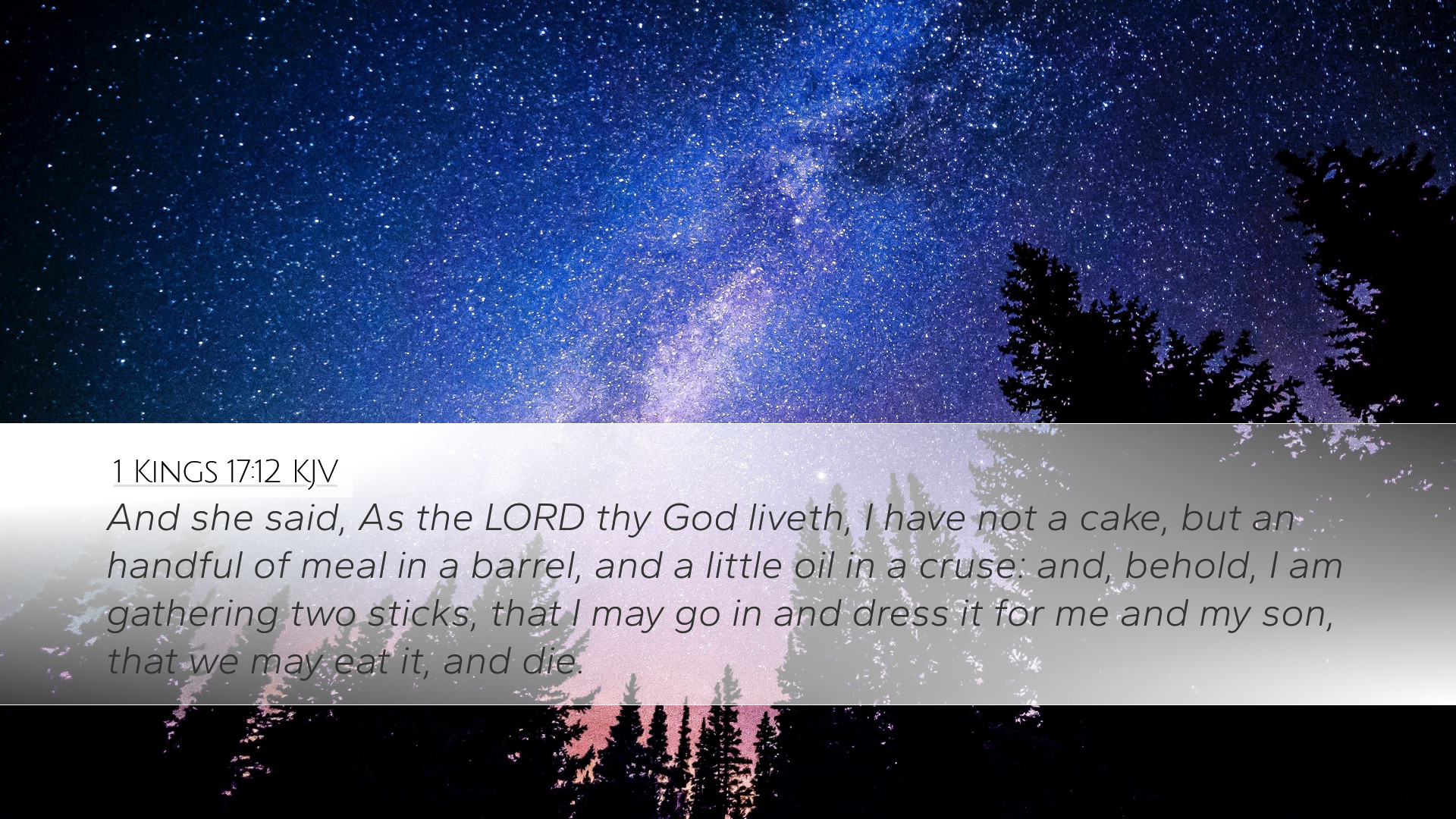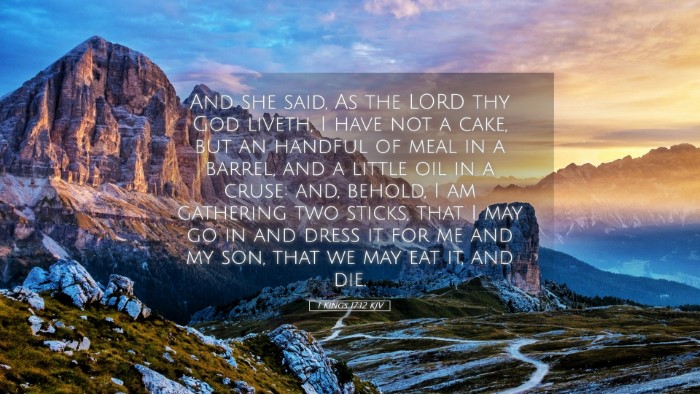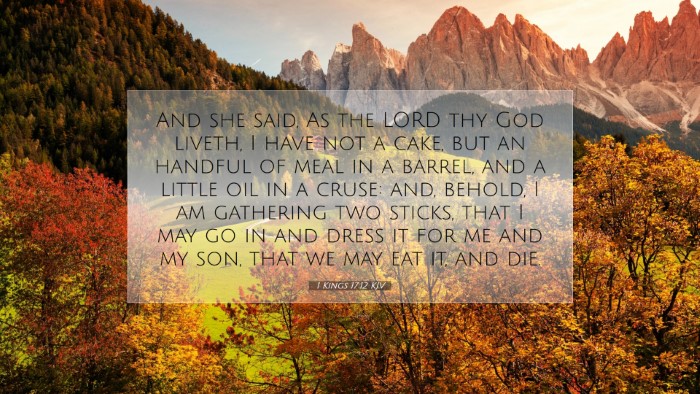Commentary on 1 Kings 17:12
Verse Reference: 1 Kings 17:12 - "And she said, As the Lord thy God liveth, I have not a cake, but a handful of meal in a barrel, and a little oil in a cruise: and, behold, I am gathering two sticks, that I may go in and dress it for me and my son, that we may eat it, and die."
Contextual Background
This passage occurs during a severe drought and famine in Israel, a time marked by God’s judgment against the idolatrous worship of Baal. Elijah has been commanded by God to go to Zarephath to meet a widow who will sustain him. The significance of this encounter cannot be understated, as it highlights God's providence and care even in dire circumstances.
Exposition of 1 Kings 17:12
The widow’s response to Elijah is filled with despair and hopelessness. She articulates her plight: only a handful of meal and a little oil remain. This critical moment reveals her understanding of her situation – she is on the brink of using her last resources before accepting her imminent death alongside her son.
Insights from Matthew Henry
Matthew Henry emphasizes the profound nature of the widow’s faith and hopelessness. He points out that her acknowledgment of God’s living presence (“As the Lord thy God liveth”) recognizes a God who is alive and capable of intervening. Henry also notes her desperation and how she articulates her predicament, illustrating a heart burdened by the weight of famine and loss of hope.
Insights from Albert Barnes
Albert Barnes provides a detailed analysis of the widow’s situation. He comments on her realism in the face of disaster; she is preparing the last of her food. Barnes emphasizes her lack of provision and the grim realities of her impending death, noting the profound context of scarcity and need. Yet, he underscores that this scenario sets the stage for divine intervention.
Insights from Adam Clarke
Adam Clarke brings attention to the desperation reflected in the widow's language. He suggests that her response indicates a level of anguish that many people can relate to when faced with insurmountable odds. Clarke interprets this moment as a test of faith, where God's messenger demands trust and a willingness to share even out of scarcity.
Theological Reflections
The response of the widow serves as a poignant theological reflection on the nature of faith during times of crisis. The act of being called to give up what little she has forces a confrontation with her own mortality and need. It offers profound insights for pastors and theologians regarding the themes of sacrifice, divine provision, and faith that shines in the darkest moments.
The Importance of Obedience
The widow’s encounter with Elijah prompts discussions about obedience to God’s commands, even when they seem illogical. Elijah's insistence on being fed with the widow's last resources is a divine paradox that invites deeper theological reflection on God's principles of provision and the transformative power of obedience.
Symbolism of Meal and Oil
The materials mentioned - meal and oil - symbolize sustenance and life. In biblical literature, meal often represents the basic sustenance, while oil can symbolize the presence of the Holy Spirit and divine empowerment. This underscores how God utilizes ordinary elements to perform extraordinary acts of provision, challenging believers to look beyond their circumstances to the potential for divine intervention.
Pastoral Applications
The message in this verse resonates strongly with the challenges faced in ministry. Pastors can draw from the widow's plight to encourage their congregations to trust in God's provision, even amidst scarcity. The story emphasizes the importance of community and how God often calls individuals to act in faith amidst personal need, illustrating God's extravagant generosity.
Encouragement in Times of Need
For believers grappling with their own situations of scarcity, this narrative serves as a powerful reminder of God's faithfulness. It illustrates the biblical principle that God provides for His people, often in unexpected ways and through the simplest of means.
Faith as Action
This passage challenges the notion of faith as passive. The widow's response signifies that faith often requires action, even when it involves risk. This challenges modern believers to contemplate how they can manifest their faith through actions, especially in challenging times.
Conclusion
In conclusion, 1 Kings 17:12 serves as a profound narrative illustrating the themes of faith, divine provision, and the call to obedience amidst dire circumstances. The insights extracted from the commentaries offer a multi-faceted understanding of the text, providing nourishment for the spiritually hungry and serving as a rich resource for pastors, students, and theological scholars. As we reflect on this encounter between Elijah and the widow, we are invited to consider our own responses to God’s call and how we may find sustenance in our times of need.


